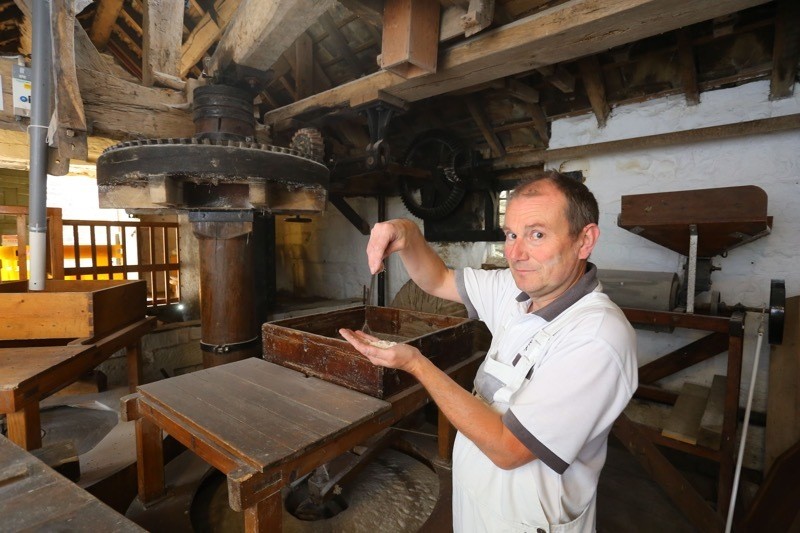IT’S more than a century old, but Worsbrough Mill is perhaps the busiest it’s ever been.
The lockdown, miller Simon Dodd says, has led to the small mill doubling its output - as the larger mills struggle to cope with the increased demand brought on over the last six weeks.
A phone line set up to take orders has had to be put on hold until Monday, so Simon and his newly-appointed assistant miller can catch up with a weeks-long backlog.
“The retail side was fairly steady before Covid-19, but it started picking up fairly quickly,” said Simon.
“We’re having to limit what we can send out, because we can’t mill for more than a set period a day.
“It’s been a challenging time for all traditional mills, but we’re responding positively. It’s all hands to the pump.
“The big mills have so little of their output going to retail, and I don’t think they’ve been able to adjust.
“We are trying to put as much into retail as possible so that people can access what they need.
“It has been surprising. I think we all felt it would drop off.”
Simon, who took over as miller in late 2018, has upped his hours and now produces a ton-and-a-half of flour every week.
The mill has stuck fairly faithfully to the same processes used when it opened in 1865 - but even these have been adapted.
It uses French Burr millstones driven by water power, which former teacher Simon, 52, says is ‘more about touch and feel’.
Alongside flour, this limited supply of water has historically been used to make white flour from one part of the grain - but this extra process is now powered by electricity.
Most of the mill’s flour goes to bakeries around the country, but Worsbrough also does its own delivery runs a couple of times a month.
Simon said good relationships with grain suppliers mean the mill could even cope at its current capacity for several months until the next harvest.
He said: “It’s physically far more tiring but I love what I do.
“I’ve been getting home and finding flour behind my ears, and asking myself how on earth it got there.
“Most traditional millers are passionate about what they do, and I’m no different.
“It’s far more than putting grain in the top and getting flour out of the bottom - there’s a lot of supporting work that needs to be done to collate orders, and work out where they’re going and how to fulfil them.
“Our commercial team have been supporting us with admin and taking some of the weight off.
We can be flexible - it’s only about the time and effort it takes to do it. We have really had to knuckle down.”





























